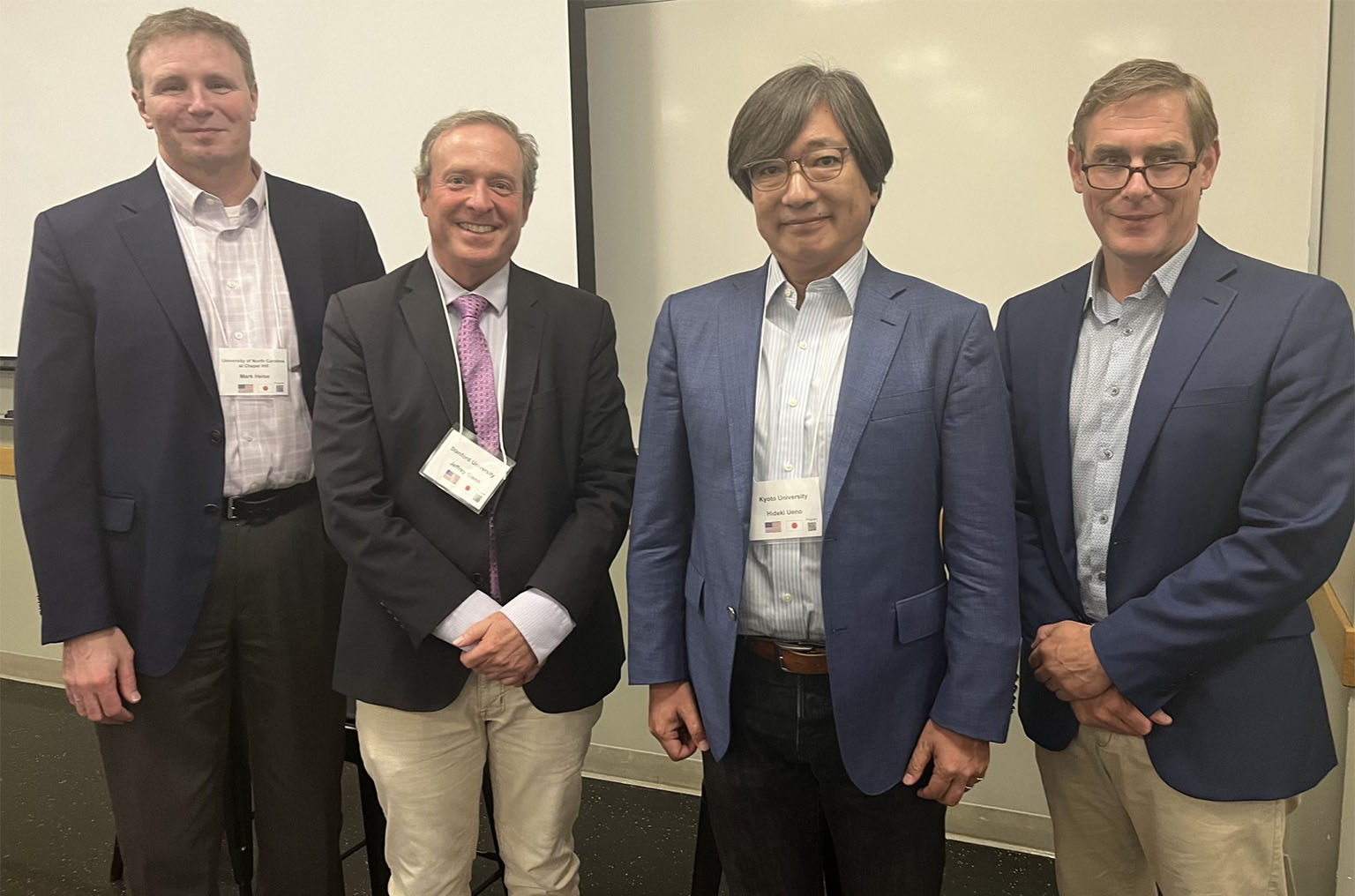UNC-Chapel Hill joins Japan-U.S. Research Collaboration symposium
The Japan Science and Technology Agency invited two Carolina researchers and READDI co-founders to host a session, “Preparing for the Next Pandemic.”

By UNC Global Affairs, August 21, 2024 — The U.S. and Japan share “compatible visions to solving intractable global issues,” said Lloyd Minor, dean of the Stanford University School of Medicine, in his opening remarks to the second annual Japan-U.S. Research Collaboration (JURC) Symposium. The breakthroughs needed to solve those intractable problems, Minor said, “will come from multidisciplinary international collaboration.”
The Japan Science and Technology Agency (JST) sponsored the symposium, and Stanford hosted it on their campus in Palo Alto on July 29-31. Organizers designed it to introduce U.S. and Japanese scientists to one another and their work to foster new collaboration, a priority they share with Carolina.
Because of Carolina’s strategic focus on strengthening research ties with Japan, JST invited UNC-Chapel Hill to sponsor a session at this year’s symposium featuring Carolina and Japanese scientists. Nat Moorman, associate professor in the UNC School of Medicine’s microbiology and immunology department chaired “Preparing for the Next Pandemic.” Presenters included Mark Heise, professor in the UNC School of Medicine’s genetics department; Hideki Ueno, professor of immunology at Kyoto University’s Graduate School of Medicine; and Jeffrey Glenn, professor of microbiology and immunology at Stanford’s School of Medicine.
Moorman and Heise are co-founders of READDI, the Rapidly Emerging Antiviral Drug Development Initiative. They established READDI at UNC-Chapel Hill to develop antiviral drugs in advance of the next pandemic — which they and the other panelists agree is inevitable. Carolina and Stanford are home to two of the nation’s nine Antiviral Drug Discovery (AViDD) Centers for Pathogens of Pandemic Concern, funded by the National Institutes of Health (NIH). Glenn, one of Moorman’s co-panelists, leads the Stanford AViDD Center.
Speakers described the importance of global collaboration for preventing the next global pandemic and limiting its destructive impact. When scientists from around the world come together, Heise said, they share different perspectives on similar problems. Those wider perspectives, he explained, can lead to better, more applicable and more accessible solutions.
Carolina’s Koji Sode, professor of biomedical engineering, was also invited to speak at the JURC symposium about “Creating Core Research Community and Fostering Talent Mobility for Promoting Japan-U.S. Science and Technology Collaboration.” Sode, who joined Carolina in 2018 from the Tokyo University of Agriculture and Technology, regularly hosts Japanese postdoctoral fellows and rising scientists in his lab in Chapel Hill.
Developing young research talent and fostering international mobility of Japanese researchers are priorities for the Japanese government. Representatives from Japanese and U.S. government agencies shared information with JURC attendees about grant funding to support U.S.-Japan research collaboration, including postdoctoral fellowships. One important funding stream is the ASPIRE program, which offers generous support to Japanese “top scientists” and “rising scientists” for collaboration with U.S. researchers. It also funds travel and living expenses for scientists working in the U.S. and Japan. Each year, JST and the National Science Foundation (NSF) issue a joint call for multi-year projects.
Other U.S. and Japanese scientists at the JURC symposium presented their research on innovative gene therapies, personalized and precision medicine, cutting edge technologies for disease prevention and disaster preparedness.
“I heard that the speakers at the [symposium] have already decided to start joint research projects,” said Takeshi Usami, director of JST’s office in Washington, D.C. “This is exactly what we expected for JURC.”
